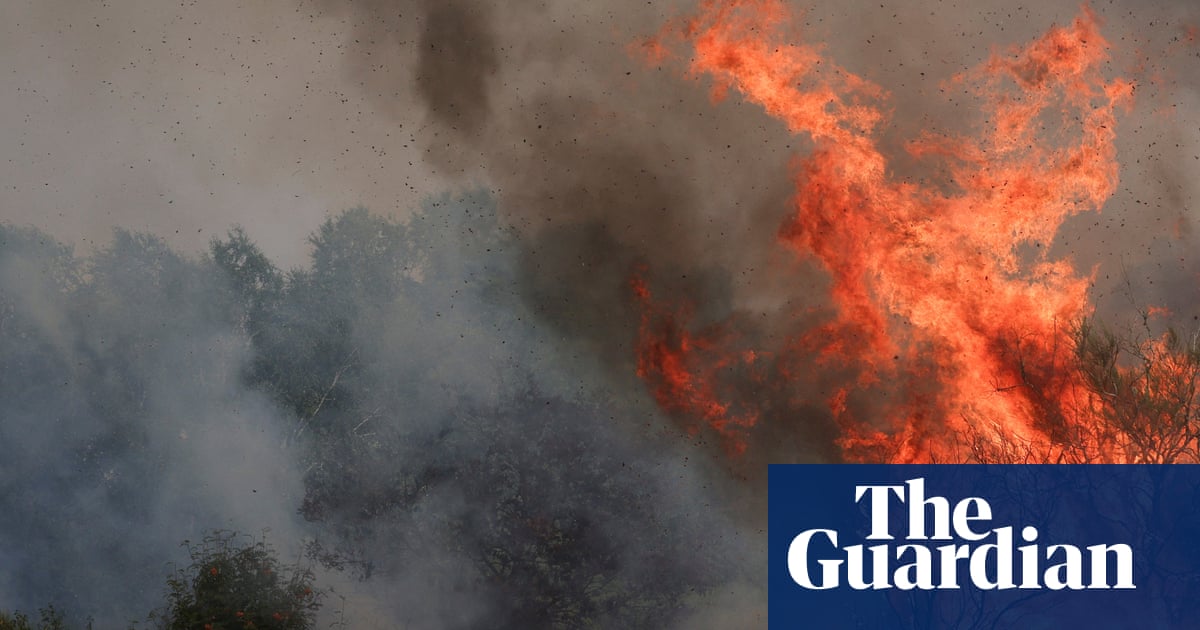Wildfires in Spain: A Stark Reminder of the Climate Emergency
Recent wildfires in Spain, ignited by an intense heatwave, have tragically claimed the lives of two individuals, devastated thousands of hectares of land, and forced many residents to evacuate their homes. Environment Minister Sara Aagesen emphasized that these events serve as a "clear warning" about the urgent realities of the climate crisis.
As firefighters continue to combat flames across Spain, Greece, and other Mediterranean nations, Aagesen pointed out that 14 wildfires remain active across seven regions in Spain, highlighting the country’s heightened susceptibility to climate change. She noted that while some fires may have been intentionally set, the overall situation underscores the critical need for enhanced preparation and prevention measures against climate impacts.
“The fires are a direct consequence of climate change, which is why we must prioritize prevention efforts,” Aagesen stated during an interview with Cadena Ser radio. “Spain is particularly vulnerable to these changes. While we currently have resources to manage the situation, scientific evidence suggests that climate change will continue to intensify, necessitating a stronger and more professional response.”
In light of the ongoing crisis, the Spanish government has formally requested assistance from the European Union, specifically for two water-bombing aircraft, as Interior Minister Fernando Grande-Marlaska announced on Cadena Ser.
The situation worsened recently, with temperatures in southern Spain soaring above 45°C (113°F), marking unprecedented highs for the region. The state meteorological office Aemet reported that no prior records existed for temperatures observed from August 1 to August 20.
Tragedy struck when a 35-year-old volunteer firefighter lost his life in the northwestern region of Castilla y León, where more than 8,000 residents have been evacuated due to the ongoing fires. Seven individuals are currently hospitalized with severe burns, four of whom are in critical condition. This followed the death of a 50-year-old man who sustained 98% burns while attempting to rescue horses from a burning stable near Madrid.
By Wednesday morning, firefighters had managed to bring the Madrid blaze under control, but in Galicia, the fires had already consumed approximately 11,500 hectares (30,000 acres) of land. Prime Minister Pedro Sánchez expressed his gratitude to emergency teams working tirelessly to combat the flames, stating that the fire situation remains serious and that extreme caution is critical.
In neighboring Portugal, over 2,100 firefighters and 20 aircraft have been deployed to combat five major wildfires, including one that has been raging in the central municipality of Trancoso since Saturday. Strong winds have rekindled flames, posing threats to nearby villages as locals volunteer to assist firefighters amidst heavy smoke.
Meanwhile, Greece has requested EU aerial support, with nearly 5,000 firefighters deployed nationwide to combat blazes intensified by strong winds. Emergency teams are engaged in a "titanic battle" against raging fires across various regions, including the western Peloponnese and several islands, leading to the evacuation of thousands of residents and tourists.
In a particularly alarming incident, a new blaze erupted on the island of Chios, devastating land that had only recently begun to recover from earlier wildfires. Local authorities are actively evacuating people to safety as flames approach coastal areas.
As conditions remain dire in Greece, officials are on high alert, anticipating further challenges due to extreme heat and dry conditions. A forestry worker tragically died while responding to a wildfire in southern Turkey, which has been grappling with severe wildfires since late June, resulting in 18 fatalities, including rescue volunteers.
The situation across the Mediterranean serves as a stark reminder of the urgent need to address the climate emergency and implement robust measures to safeguard communities from the increasing threat of wildfires.
By focusing on SEO-friendly keywords such as "wildfires," "climate emergency," "Spain," and "firefighting efforts," this content aims to improve visibility while maintaining a humanized tone that resonates with readers.









